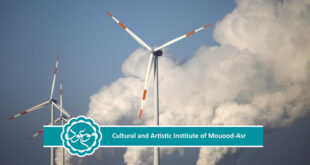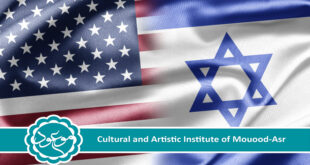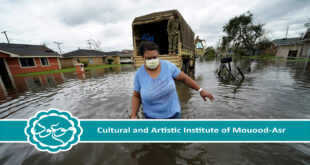2- And also the same person quotes that a group came to Imam “Ali ibn Mousa Al-Reza (a.s.)” from Khorasan and asked him to exempt them of paying Khums, Imam said: “I do not permit such a thing, you express your kindness to me by your words, but you withhold the right which Allah has legislated for us and has made us its servants from us, I do not exempt any of you, do not exempt, do not exemp”.7
3- Abu Basir quotes from Imam Baqir (a.s.) that I heard that his holiness was saying: “Anyone who buy something from Khums, Allah will not forgive him because he has bought a thing which is not Halaal for him”.8
Moreover, cabbalas 8, 9 and 10 of this chapter and also cabbalas 1, 2, 3, 4, 5, and 6 of chapter eight from chapters of “What Khums is obligatory in it” say that some of Imams (a.s.) not only didn’t permit the Tahlil of Khums, but also took that seriously for spending in necessary cases.
It is understood well from these cabbalas that the matter is not permanent and forever, but it is exclusive to specific conditions like some of tax exemptions.
***
Third, has been about a specific person, which means that a specific person had came to Imam (a.s.) and Imam exempt him from paying Khums by considering his conditions.
Example of this matter is Hadith 13 of chapter 1 from chapters of Anfal9 which shows that a person called “Hakam ibn Oliya Asadi” came to Imam Baqir (a.s.) while he had brought the Khums of his assets, his holiness took that Khums and then forgive it to him.
Because the conditions of this person were in the form that because of need or encourage or any other purpose, it was best thing to do to exempt him from paying Khums.
And the sentence that Imam said “I make this Halaal for you” is a proof for the fact that this order had not been a general ruling, unless this expression doesn’t make any sense.
***
Fourth, are cabbalas which theirs contents are about Tahlil but it clears by noticing that the meaning of them is not Khums, but it is “Anfal” (Spoils and also public resources)
Like cabbala 12 of chapter 4 from chapters of Anfal which the late owner of Wasael has mentioned that with other cabbalas of Tahlil in one chapter, but it is understood well from below of the cabbala that it is related to Anfal lands (public resources).
Therefore, all emphasize of this cabbala is on the issue of lands and fields.
And also seventeenth cabbala of this chapter.
***
Fifth, are cabbalas which are not exclusive to specific time or person, and their features are absolute Tahlil, that are only three cabbalas which we study in continue.
First is the cabbala that “Salim ibn Mukram” (Abu Khadija) quotes from Imam Sadiq (a.s.) that I was there when someone came to Imam (a.s.) and said I want you to permit me for sexual intercourse with women, Imam was frightened by his words; a person from attendance said he does not mean to rape people, but he means that he wants to buy a female servant (from spoils and assets which their Khums has not been paid) or a women to marry him, or a heritage which he receives, or the income of business or the thing that someone gives him as a gift; Imam (a.s.) said these are all Halaal for all of our Shiites, consisting those who are present here or absent, those who are dead or alive, or those who will be born until the end of days, these are Halaal for everyone.10
Although nothing has been mentioned explicitly about the Khums in text of Hadith, but the thing which Imam (a.s.) has made Halaal for everyone consisting of merchandise and spoils of war and gifts should be an asset which Khums has been implied on it.
But we should note that first of all, the document of this Hadith is weak because Salim ibn Mukram who his another name is Abu Khadija is the subject of lots of discussions among scholars of Rijal science; some persons considered him reliable and some others considered him very weak, and some scholars has stop discussing about him and expressed no comment, and accordingly cabbalas which he had quoted alone are not acceptable.
Secondly, if we pay little attention to the question which has been asked from Imam, it clears that whole discussion in cabbala is about female servants whom Khums had been implied on them or women who their Mahr (marital gift) had been paid from assets which their Khums had not been paid, or a female servant or a women who has been given to a person with gifts and heritages which Khums had implied on them.
Briefly, content of Hadith is completely about women and wives who are given to a Muslim, and either their Mahr or they themselves have been one of cases of implication of Khums and the answer of Imam (a.s.) is also exclusive to this part, unless this does not any sense that a person asks about women and another person from attendance generalize his words to everything.
Therefore the last thing which is understood from this Hadith is that any right which belongs to the Khums of Mahr of women and spouses has been made Halaal by Imam (a.s.) for anytime and anyone of Shiites in order for “purity of birth” which means legitimacy of children, and as we said before this is the matter which our Faqihs had expressed in Fiqh books as an exception, but it could not be the proof of forgiveness of Khums forever, but forgiveness is exclusive to the issue of wife and female servant.
Also we know that according to cabbalas of chapter of “Mahr” (marital gift) if a person has decided not to pay the Mahr of a woman or pay it from a Haraam asset, he is considered as adulterer.11
Although some Faqihs understood Tahrim (being Haraam) and some others Karahat (being disliked) from this kind of Ahadith, but anyhow it shows that paying Mahr from asset which is not completely owned by a person is not without influence on the condition of child and accordingly this part of Khums has been forgiven in order for purity of children.
There it is not possible to prove a thing with this cabbala which has neither enough implication nor reliable document.
Second one is a Hadith that “Ma’aaz ibn Kathir” quotes from Imam Sadiq (a.s.) that he said: “There is lots of opportunities for our Shiites in order to spend their wealth in charity in the way of Allah, but when our Qa’im (he who arises) arises, any treasure which anyone has saved will become Haraam for him, in order to give that treasure to him and use it for achieving to his goals”.
But as it clears by an accurate look, nothing has been mentioned about the issue of Khums in this Hadith, but it points to the fact that capitalists and rich people of the nation can save wealth and also spend in charity in the way of Allah until the day that Mahdi (a.s.) arises, then in that day they should give all of their savings to him in order to use them for advancement and expansion of justice of earth.
The best reason for the fact that Hadith has no relation with Khums is that he says they should give all of their savings to Mahdi not only its Khums (one fifth), because if the purpose of Hadith was the issue of Khums he should say give its Khums to him.

 Mouood Mouood English Edition
Mouood Mouood English Edition



